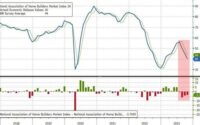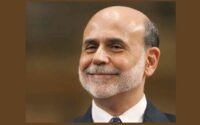Resignation of Peronist leader triggers crisis over Argentina’s $44.5bn IMF deal
Argentina has been plunged into a fresh crisis after a crucial figure in the ruling Peronist coalition resigned on Monday in protest at the country’s outline deal with the IMF to restructure $44.5bn of debt.
With the ink barely dry on Friday’s debt agreement, Máximo Kirchner announced he was quitting as leader of the Peronist bloc in the lower house of congress because he “did not share the strategy used and far less the results obtained in the negotiation with the International Monetary Fund”.
Kirchner is the son of Cristina Fernández de Kirchner, Argentina’s powerful vice-president, and the pair are important figures in the Peronists’ radical wing. They have been critical of IMF pressure to trim government spending and reduce the budget deficit, which they blame for Peronist losses in midterm elections last year.
The open split within the ruling coalition raises serious questions about whether the more pragmatic Alberto Fernández, president, and Martín Guzmán, his economy minister, can succeed in turning the outline deal they announced last Friday into a full extended fund facility agreement with the IMF and secure approval from congress.
Argentina’s economy is in dire straits, with net foreign reserves almost exhausted, inflation running above 50 per cent a year and the parallel exchange rate more than double the officially controlled level. The latest dispute is likely to make matters worse.
“Máximo has triggered a crisis which could have been avoided,” said Hector Torres, a former executive director at the IMF. “He is trying to show that he is an alternative to an agreement with the IMF . . . but I struggle to see the rationality of sinking the ship in order to seize the wheel.”
Markets had welcomed the outline IMF deal announced on Friday as a pragmatic solution to Argentina’s immediate problems but some economists had criticised it for over-lax conditions. The country’s budget deficit was targeted to decline gradually from 2.5 per cent of gross domestic product this year to 0.9 per cent in 2024, along with a gradual reduction in central bank money printing to fund it.
Guzmán hailed the deal, saying it would allow him to continue to increase spending in real terms as the economy grew and that he had avoided making any fiscal adjustment. Important figures such as projected economic growth were missing from Friday’s announcement.
But Kirchner said in his resignation statement that it would be “irrational and inhuman” not to point out what he termed the “errors and abuses of the IMF, which never damage the entity and its bureaucracy”.
The president on Monday said Kirchner had informed him of the decision to step down and that it was for “the best” but did not mention the ongoing IMF negotiations or whether it would influence the terms outlined on Friday. “Máximo made this decision, tomorrow we will be deciding who replaces him,” Fernández said in a televised interview.
“I’m convinced this is the best agreement we could have reached [with the IMF],” the president said, playing down the significance of the resignation.
The Peronists have always been heavily critical of the IMF’s decision to give Argentina a $57bn bailout in 2018, saying it financed capital flight and was mainly done to help the re-election campaign of then-president Mauricio Macri. The programme veered off track after a year and Macri lost the 2019 election but most of the money had already been disbursed.
An internal IMF report published last month criticised some aspects of the original bailout, the 21st in Argentina’s long and chequered history with the fund since the country joined in 1956.
[ad_2]
Source link


